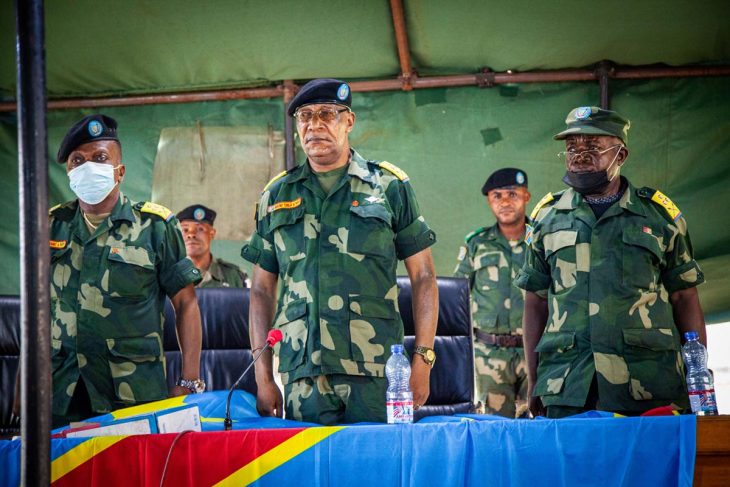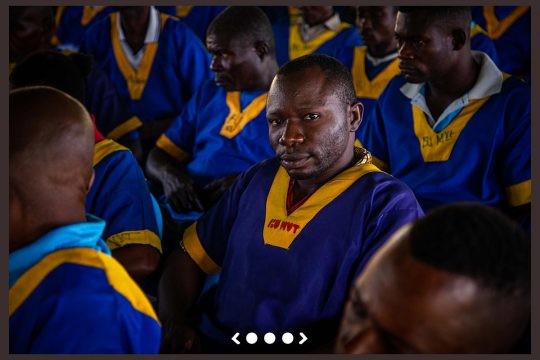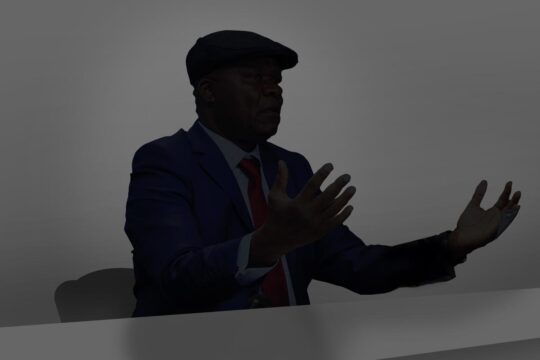The now famous "Mapping Report" published in October 2010 by the Office of the United Nations High Commissioner for Human Rights (OHCHR), listed 617 serious "incidents," most of which constituted mass crimes committed between 1993 and 2003 on the territory of the Democratic Republic of the Congo (DRC) which were pre-qualified as crimes against humanity, war crimes and even, in the case of the massacre of thousands of Hutu refugees, possible genocide. A decade later, almost none of these international crimes have been prosecuted, whether by a Congolese court, an international criminal court, or on the basis of universal jurisdiction.
None of these crimes has given rise to any work of remembrance or truth-seeking mechanism worthy of the name. None of the individual victims and none of the victimized communities have been granted reparations, individual or collective, material or symbolic. There has been no guarantee of non-repetition through a reform and clean-up of the security sector. In short, none of the main mechanisms of transitional justice have been put in place in the DRC, despite the massive presence of the United Nations there for more than 20 years.
In the preface to the report, UN High Commissioner for Human Rights at the time Navanethem Pillay noted that it "looks to the future by identifying several paths that Congolese society can take to come to terms with its past”. She stated that "although it is primarily up to the government of the DRC and its people to define and implement an approach to transitional justice, they must be able to count on the support of the international community in this regard", and she asked the United Nations to "fully support the human rights stocktaking exercise undertaken in the country by the OHCHR”.
More than 11 years later, where do we stand?
"A report is gathering mould"
In December 2018, during his Nobel Peace Prize acceptance speech, Congolese doctor Denis Mukwege said: "A report is gathering mould in an office drawer in New York. It was drafted following professional, thorough investigations into war crimes and human rights violations perpetrated in Congo. This investigation explicitly names the victims, the places and the dates, but leaves the perpetrators nameless. (…) What is the world waiting for to take this into account?” Lacking a response to his question, the Nobel Peace Prize winner was left proposing in June 2021, a note of "Advocacy for a holistic national strategy for transitional justice in the DRC".
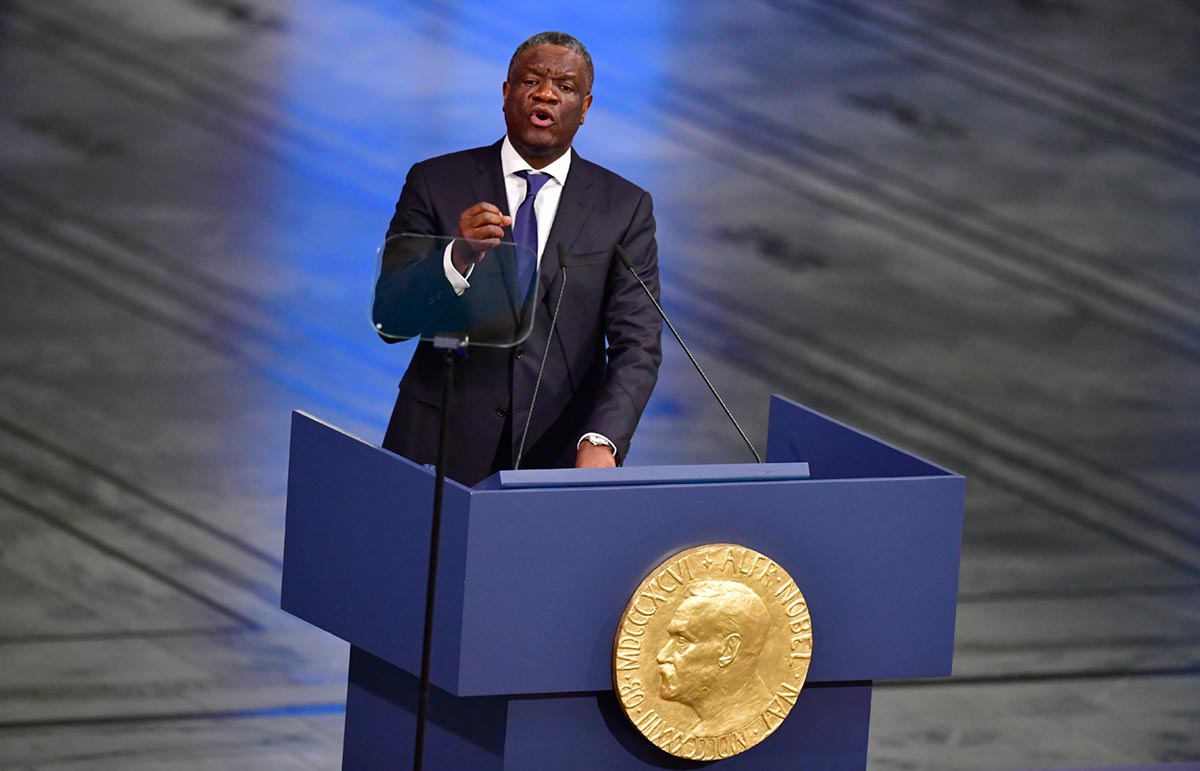
It is disturbing to note that Security Council Resolution 1991, adopted a few months after the publication of the Mapping Report, is completely silent on the follow-up that should be given to it. The resolution speaks in vague and general terms only of "promoting lasting reconciliation in the Democratic Republic of Congo by continuing the fight against impunity”. It is not surprising that the United Nations, through MONUSCO, the UN Joint Human Rights Office, the UNDP, etc. is only developing a minimal transitional justice programme in the DRC.
“A sham justice system”
Of the 617 "incidents" listed in the Mapping Report, only two, the so-called Milobs incident and the Ankoro incident, were prosecuted before Congolese military courts. The paragraphs devoted to the Ankoro case are worth reading. “A careful reading of the decision suggests a lack of impartiality and independence,” says the report. To the point that "this trial was considered by national NGOs and victims to be impunity, using a sham justice system set up to shield the defendants from prosecution”.
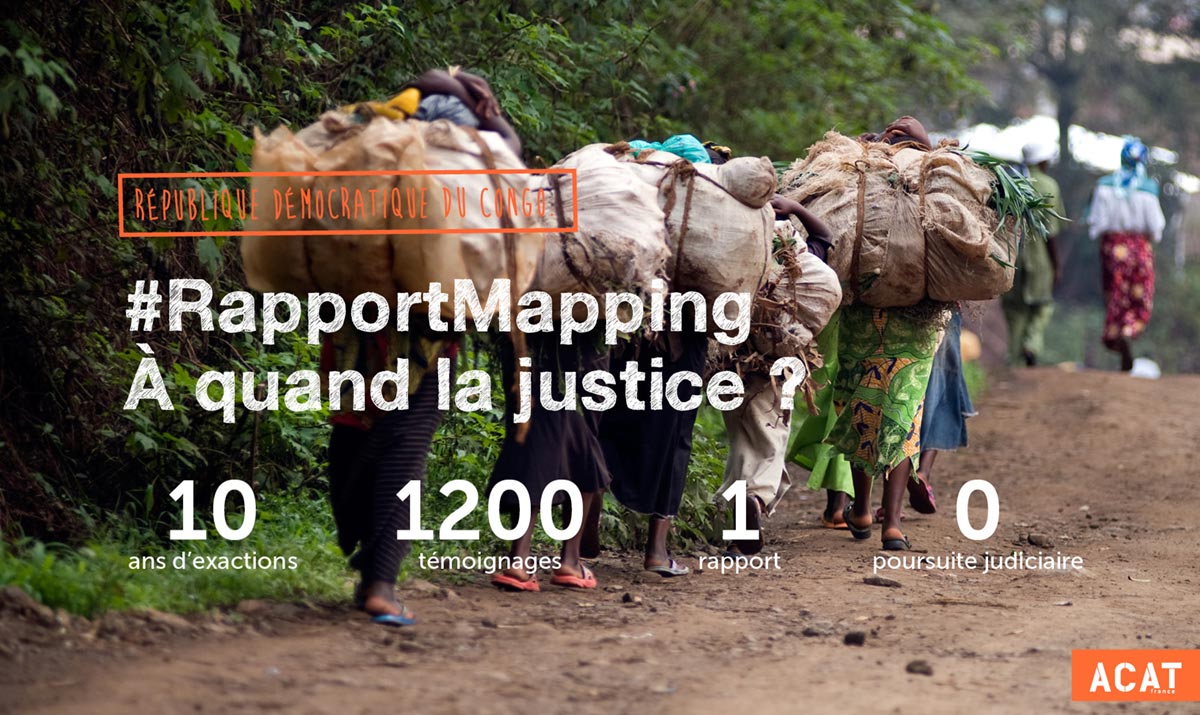
This court case (as well as many others in recent times) illustrates the urgent need to remove the jurisdiction of military courts to prosecute alleged perpetrators of international crimes. Their serious shortcomings and weaknesses are detailed at length in the report: "One of the major weaknesses of the judicial system in the DRC has always been the lack of independence of the courts and tribunals from the executive, legislative and administration structures of the State. Interference and interference in judicial matters by political and military authorities is common and well known”. The Mapping Report recalls the principles of the United Nations, one of which states that "in all circumstances, the jurisdiction of military courts should be set aside in favour of the jurisdiction of the ordinary courts to conduct inquiries into serious human rights violations”.
Since then, Congolese military tribunals have continued to receive support from the United Nations and international NGOs, and have pursued a "prosecutorial strategy" focusing on cases primarily of sexual violence, with the automatic (and often abusive) characterization of acts of violence as crimes against humanity or war crimes. There is an urgent need to stop being naive or complacent. The result that political and military authorities expect from these military justice proceedings is purely "for show". In reality, the hidden but real objective of these trials or, in many cases, of these parodies of trials, is to mask the complete or almost total inaction of Congolese justice on the prosecution of international crimes.
It would be ridiculous to pretend that the total lack of independence and serious shortcomings in terms of the right to a fair trial denounced by the 2010 Mapping Report have since disappeared as if by magic or through a slew of so-called "capacity building" programmes. All this makes it incomprehensible and even shocking that the United Nations and several international NGOs (TRIAL International, RCN/Justice & Democracy, Avocats sans frontières, Physicians for Human Rights, etc.) continue to support the military justice system, which, in contradiction to legislative changes, continues to exercise a virtual monopoly on the prosecution of international crimes.
Truth-seeking and reparations on hold
Despite the recommendations of the Mapping Report, the UN has supported almost no serious initiative to investigate the truth about the mass crimes committed during the ten-year period covered by the report. The few truth-seeking activities supported by UN agencies focus on the more recent past of mass crimes committed in Kasai.
This approach prioritizes non-judicial transitional justice mechanisms, with a real risk that this will be at the expense of judicial mechanisms and guarantees of non-repetition, such as the security sector clean-up process. While welcoming some progress, such as the adoption of a provincial edict creating a provincial Truth, Justice and Reconciliation Commission in Central Kasai, the Congolese Society for the Rule of Law, in its many reports and communiqués, points out that "the three priority cases (Mulombodi, Nganza and Tshisuku) referred to [the military prosecutor] are inexplicably slow”.
The Mapping Report also makes numerous recommendations on reparations, concluding that a compensation fund would be an appropriate mechanism. But here again, the technical assistance provided by the specialized agencies of the United Nations has been terribly inconsistent. How else can one explain the fact that the only government initiative is a very recent and questionable draft ministerial decree "establishing the statutes of a public institution called the National Fund for Reparations to Victims of Sexual Violence and Other Serious Crimes in the Democratic Republic of Congo"?
Institutional reforms and guarantees of non-repetition
In 2010, the Mapping Report noted that, as in the justice sector, reforms of the security forces, particularly the police and the army, had been undertaken at the beginning of the transition in the DRC. But it added: "However, it is regrettable that transitional justice has not been taken into account in any way in these processes", which would have allowed for vetting measures aimed at ensuring that "state officials who are personally responsible for gross human rights violations, in particular those in the army, security services, police, intelligence services and judiciary, should no longer exercise their functions within state institutions”.
The United Nations is well aware of the individuals potentially targeted by these measures. While the identity of the alleged perpetrators of some of the crimes listed in the Mapping Exercise is not mentioned in the report, it has been recorded in a confidential database of the project submitted to the High Commissioner for Human Rights. There is also a second database. This is the database of the MONUSCO Profiling Unit, which is responsible for examining the past actions of members of the Armed Forces of the Democratic Republic of Congo (FARDC) concerning respect for international humanitarian law and human rights in the context of the UN’s "due diligence policy" and provision of UN support to non-UN security forces.
It is understandable that these databases are used as part of the "due diligence policy”. It is far less understandable that they are not used in a vetting process to ensure that senior FARDC officers who are alleged to have committed gross human rights violations are no longer able to remain in post. It is even less understandable that these two databases are not used to launch criminal proceedings against them.
Non-assistance to people in danger
One can only note the shocking apathy of the United Nations with regard to the implementation of transitional justice mechanisms in the DRC and bitterly regret that transitional justice is largely absent from the "strategic documents" that guide its action in this country. We would cite, among others: the Security Council resolutions adopted since the publication of the Mapping Report; the Joint Justice Reform Support Programme (2020-2024), in which only two lines and a footnote are devoted to transitional justice; and the MONUSCO withdrawal plan, in which transitional justice mechanisms are not even mentioned.
These astonishing shortcomings of the United Nations are carefully concealed behind statements welcoming the progress made and congratulating the Congolese authorities. The Secretary-General, for example, "is encouraged by the government's commitment to the advancement of transitional justice, as evidenced by its programme of action and the recent establishment of a joint commission, composed of representatives of the national authorities and the UN, to develop a roadmap", and adds: "I am encouraged by the progress made in establishing transitional justice measures in the Kasai region, which is essential for its stability". For its part, the Security Council, in a recent resolution, "welcomes the steps taken by the Congolese government towards the establishment of a national transitional justice strategy”. And not to be outdone, the Human Rights Council "welcomes the process under way of implementing the transitional justice mechanism”.
An inferior substitute for transitional justice
In reality, there is no true "implementation process" of transitional justice under way in the DRC. At most, there are "measures" being prepared by the government that risk putting in place an inferior substitute.
We have already seen that serious reservations have been expressed about the proposed National Reparation Fund. There are equally strong reservations about the establishment of a "National Commission for Transitional Justice and Reconciliation" contained in another draft decree prepared by the Ministry of Human Rights. If examined closely, this NCTJR would in reality be nothing more than a poor copy of the first Truth Commission that the DRC had from 2003 to 2006, which completely failed. It will not be able, as it claims, to "implement the national policy and strategy of transitional justice in the Democratic Republic of Congo", since this policy has not been defined beforehand, but will instead be a means of protecting the perpetrators of abuses from future legal proceedings.
A "Kasai Model" of Transitional Justice?
Kasai has recently been held up as a "model." Since 2016, the Kasai region has experienced large-scale violence that has left thousands dead. As a result, the Human Rights Council decided in June 2017 to appoint a team of international experts to visit the area. In late 2018, the UN Peace Building Fund funded the Peace, Justice, Reconciliation and Reconstruction in Central Kasai project. Implemented by UNDP, MONUSCO's human rights office and the international NGO Search for Common Ground, the programme aimed to put in place transitional justice mechanisms. But three years later, a question arises: can this "transitional justice programme in Kasai" be replicated and extended throughout the Democratic Republic of Congo? The answer is no, for several reasons.
The programme is far from having achieved its objective. Although an edict creating a provincial Truth, Justice and Reconciliation Commission in Central Kasai was adopted, it exists only on paper. The various forms of reparations (individual and collective, material and symbolic) are far from having been granted to the victims. In the wake of the latest Security Council resolution, the Congolese Society for the Rule of Law, the most active NGO on this question in Kasai, issued a statement in which it "continues to express serious doubts about the willingness of the government of the Republic to fight impunity” and fears that MONUSCO's support on this issue is limited to the North and South Kivu provinces and Ituri.
There is also another reason why "replication" is even more impractical. The context of the mass crimes committed in Kasai in the recent past has almost nothing to do with the context(s) of the mass crimes committed in the more distant past in eastern DRC. The vast majority of the crimes reported in the Mapping Exercise were committed in the context of an international or internationalized armed conflict that involved two or more states (Zaire/DRC, Rwanda, Uganda, Burundi, etc.), thus qualifying as war crimes. In Kasai, the majority of the crimes reported in the International Expert Team report were committed in a completely different context - that of an internal armed conflict involving the national defence and security forces, the Kamuina Nsapu and Bana Mura militias.
What are the causes of this UN passivity?
The absence of a serious initiative to bring to justice those responsible for Congo's suffering remains incomprehensible to the Nobel Peace Prize winner. In his latest book, "The Power of Women", Mukwege recalls how, elsewhere, the international community has acted, most often through Security Council resolutions: "The genocides in the former Yugoslavia and Rwanda gave rise to ad hoc international courts that have indicted 250 of the worst criminals. The Special Court for Sierra Leone established in 2002 investigated the civil war that ravaged the West African country in the 1990s, and in 2012 it found former president Charles Taylor guilty of war crimes. A criminal court was established in 2003 in collaboration with international aid to prosecute the leaders of the Khmer Rouge who caused the deaths of more than 1.5 million people in Cambodia over four years during the 1970s."
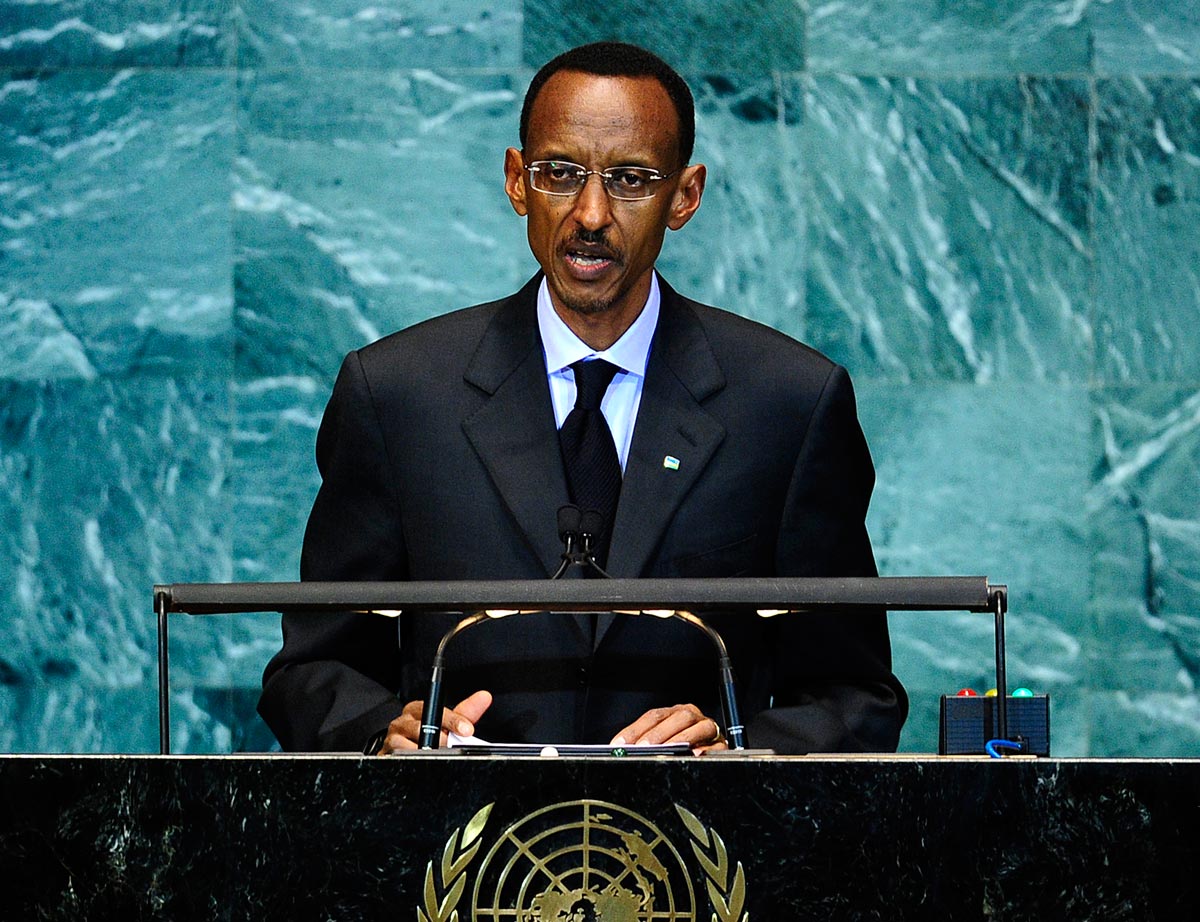
So why, once published, was the Mapping Report put in a drawer at UN headquarters, where more than ten years later this colossal work condemned to irrelevance still lies? Mukwege, in his book, dares to answer: "A first draft of the report was leaked, and the media focused on the role of Rwandan troops in the atrocities committed and the hypothesis that the massacre of Hutu refugees on Congolese territory could amount to genocide. The Rwandan government 'categorically rejected' this idea and said it was an attempt to 'validate the theory of double genocide', according to which there was a second genocide against Hutus in the DRC. Rwandan President Paul Kagame, a former military commander, threatened to withdraw his 300 Rwandan peacekeepers from the UN. Secretary-General Ban Ki-moon rushed to the country to ease relations."
There has been no willingness among the world powers to follow up on the work of this mapping report. The United States and the United Kingdom in particular have continued to support and protect Rwanda. And a disillusioned Mukwege concludes: "As far as the Congo is concerned, the international community continues to look the other way."
A different version of this article was published on the Afrikarabia website.
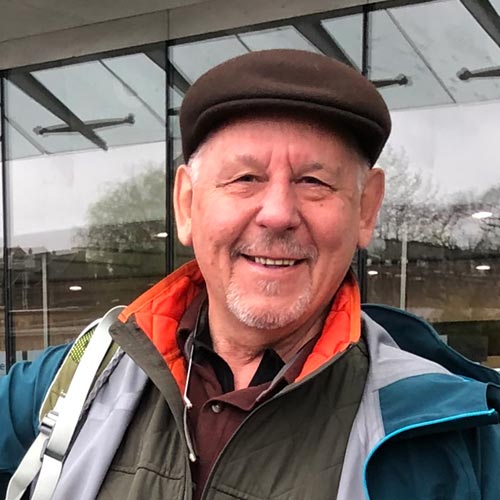
Luc Henkinbrant, who has a doctorate in law from the Catholic University of Leuven, is a former director of Amnesty International Belgium. He coordinated MONUSCO’s unit for the fight against impunity and transitional justice at its human rights office in the Democratic Republic of Congo (DRC). He is a visiting professor at the Catholic University of Bukavu and at the Military Academy of the DRC. He is co-founder of the online memorial site for victims of crimes committed in the DRC: www.memorialrdcongo.org.


